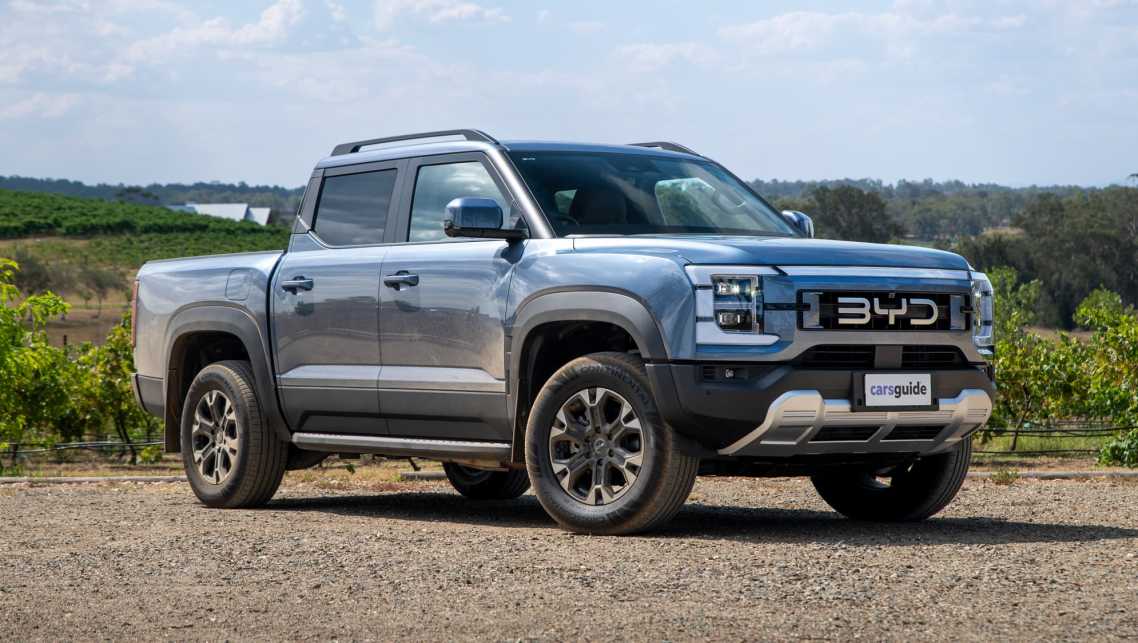China's EVs vs Japan's hybrids

Chinese carmakers are knocking out electric vehicles at a quick pace, and it's likely to not just unsettle Japan's dominance in the automotive industry, but knock it out.
Will Australian carmakers let this happen? Things are about to get interesting.
Straight, fair dinkum and over the top good.
'Toyota got it right on the money': Brake on electric car growth in Australia sees Toyota's hybrid-first approach proving the way to go as sales of Toyota RAV4, Corolla Cross, Corolla and Kluger hybrids go off like a firework
All the new Chinese car brands and when they're coming to Australia to give Toyota, Mazda and Ford a run: From Aion to Zeekr via GAC, Geely, JAC, Jaecoo, Leapmotor, Skywell, Smart, Xpeng and the like, here's what's on the cards.
"The impact of one year changes significantly in the automotive industry": 2025 will belong to the Toyota RAV4 as the BYD Shark 6 and Kia Tasman are expected to disrupt the sales of the Ford Ranger and Toyota HiLux.
We all know China is a top dog when it comes to churning out goods for the world. In 2024, the World Bank found out that China was responsible for 31.6 per cent of the planet's manufacturing output, making it the number one exporter and supplier of goods. Coming in a fair way behind was the United States, with 15.9 per cent of the market share.
The rate of China's shift into car manufacturing is underestimated. In 1985, China made a total of 5200 vehicles. By 2024 it shifted sales to more than 31 million vehicles. The United States produced just under half that amount, with close to 16 million vehicles made. Japan produced almost eight million vehicles.
The established car-makers overseas are now under threat from what Chinese production might do to their long-held dominance. Australia has tried to protect its own car-making industry with tariffs, but countries like the US have been taking a different tack, allowing Chinese car-makers to compete freely within our market, which no longer produces its own vehicles.
have supplied reliable, affordable and even desirable cars that have won the world over.
GWM.
For the past 15 years, Japanese car manufacturers have been battling against their competitors from Korea, with Kia and Hyundai slowly but surely making a mark in the market with their popular petrol and diesel cars.
Tesla.
It all happened like a wink of the eye. The Japanese carmakers' plan was: petrol and then hybrids, finishing with electric. Meanwhile, the Chinese surprised everyone by going almost straight to electric - at least, most of what they sold overseas was electric.
So now the Japanese carmakers are in the hybrid phase of their plan to counter the Chinese with their electric vehicles.
petrol-electric hybrids.
despite the fact that it will soon be phased out.
for each respectively.
Toyota seems to be backing its hybrids 100%, going so far as to say its decision is confirmed after the company's Aussie director of sales, Sean Hanley, boasted to CarsGuide that the drop in EV sales proves Toyota was right.
"No one can say they've outsmarted Toyota, because that implies Toyota made a mistake," said Hanley.
“Toyota didn't make a mistake. Toyota got it spot on, if you ask me. I'd bin a job to have 20,000 EVs just sitting on me property at the moment. I'd bin a job to have 10,000, fair dinkum. The truth is, we got it completely right.”
The electric Highlander is coming after the Toyota’s bZ4X.
Zeekr.
Geely could dent Toyota's stronghold.
Affordability and battery technology are the Chinese carmakers biggest advantages in this competitive market. Some of the new Chinese EVs on the market are solid to drive, with stylish and appealing designs.
Haval Jolion hybrid SUV.
Don't write off the Japanese brands just yet. Those in a solid financial position, like Toyota, should be okay losing electric car sales - they know the entire market won't switch to electric tomorrow, or even in the next 20 years. By then, they'll have introduced their own electric models anyway.
Kia and Hyundai are looking pretty solid, and it's for another reason altogether. Both sister brands have got a big head start, offering all sorts of powertrain options, from electric and hybrid to petrol and diesel. I reckon Kia and Hyundai will both come out of this decade stronger than ever.
A major worry is the Japanese car manufacturers who are in financial trouble. In late 2024, a Nissan insider told The Financial Times, “We have 12 or 14 months to survive”.
In fact, Volkswagen was in talks with willingly, a new partnership with The new alliance is not with Volkswagen, but rather with Honda.
That could provide a way to counter the threat from Chinese carmakers, but reports that have come out in the past couple of days suggest the talks are a bit up in the air with Nissan looking at a new partner.
Fair dinkum, we're living in some ripper times for the auto industry, but if you're a buyer just remember, it's you they are fighting over and that can only mean better deals for consumers.
Posting Komentar